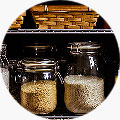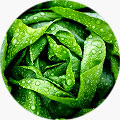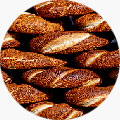Do you want to consume a quality honey? Do you need to be sure that honey is real honey? Then you can choose Koska brand products. With Koska Strained Pine Honey 20 gr, you can meet your daily honey needs and get the necessary vitamins and minerals easily. Do both your children and yourself a favor and consume real honey.
Koska honey is a completely natural product produced by bees and does not contain any sweeteners. Each batch of honey purchased is received with the analysis reports of an authorized laboratory, ARGEFAR (Aegean University Pharmaceutical Development and Pharmacokinetic Food Environmental Analysis Laboratory). All criteria determined in the Turkish Food Codex Honey communiqué are analyzed. Any product whose analysis has not been completed is not processed, but can be put into production after a positive report. Helping to increase body resistance and keep fit, honey is taken from the beehive in its purest form and packaged untouched by hand. We share the analysis results of each batch of products with you, our valued customers, from the Analysis Reports in the Consumer section of our web page. Information about the product: This product has been obtained from the hives in the high plateaus of Anatolia. Its quality is constantly analyzed by authorized laboratories. You can examine the reports of the product from the link with the lot number on the packaging. Do not store in the refrigerator, store at room temperature, protect the product from high temperature and bright light. It may crystallize because it is natural. In case of crystallization, leave it in a container filled with 45 degrees water for 30 minutes. Warning: It is not recommended to be consumed by children under 1 year old.
If you are drinking tea or milk with honey, the packages are the ideal choice for you. You can both carry it with you as you wish and understand how much you consume. Moreover, the fact that the product is real honey prevents its sugaring.
Pine honey is an exceptional honey that bees produce not from flower pollen, but from the secretion of an intermediary insect living in the trunk of some pine tree species native to the Mediterranean climate. It is found only in Turkey and Greece in the world.
For the production of pine honey, this insect, which is called the pine cotton beetle, or also called the pine cotton louse because of its millimeter size, is popularly called the pine beetle (or honeydew beetle). This insect lives only on red pine (also called "Turkish pine" or "Calabrian pine"), larch and Aleppo pine. In zoology, this insect is known as Marchalina hellenica within the aphids classification and also as Monophlebus hellecinus.
Basra (honeycomb) beetle feeds by sucking the sap of the pine, and excretes the remaining sap as a sweet substance. This liquid secreted by the Persian beetle between July and October is loved by bees. This sugary residue of the insect is collected by bees. Trees containing this sugary substance are called honeydew trees among the people. In honeydew trees, insects lay eggs on the ground-level parts of the tree trunks, and the born offspring climb the tree slowly and sucking the sap of the pine. Since they die in years when the winter is harsh, beekeepers, in such cases, collect the wax in which the insect accumulates in the winter from the regions where it is abundant and take it to their own area and leave it covered with brushwood to protect it from the cold. This should be done at the latest in April, when the winter candle remains intact. Otherwise, the insects will not be able to withstand the journey, and the breeding season in May will be jeopardized.
Another point that beekeepers pay attention to when leaving their beehives (for the bees to produce pine honey) to the pine is not to keep the bees in this area too much. Because if the bees that produce honey from insect secretion are left in the pine for a very long time (maximum 20 days), the queen reduces egg laying over time, since there is no pollen in the pine trees at that time. Therefore, the hive weakens. In order to maintain the productivity of the queen bee, the practice of giving ready-made pollen cakes is also becoming widespread. On the other hand, if pine honey is to be produced, it is important that there are not many flowers in the environment so that the bee does not leave the pine and turn to flower pollen.
The most important feature of pine honey is that it can be stored for years without losing its consistency or freezing. Therefore, it is also easy to market. Its color is darker than most of the flower honeys. Although its nutritional value is slightly lower, it is especially good for throat ailments. With its resistance to crystallization and its preventive properties, pine honey is a product with a wide range of uses as a natural additive in various products (for example, ice creams) in medicine and food industry, and with significant export potential.












